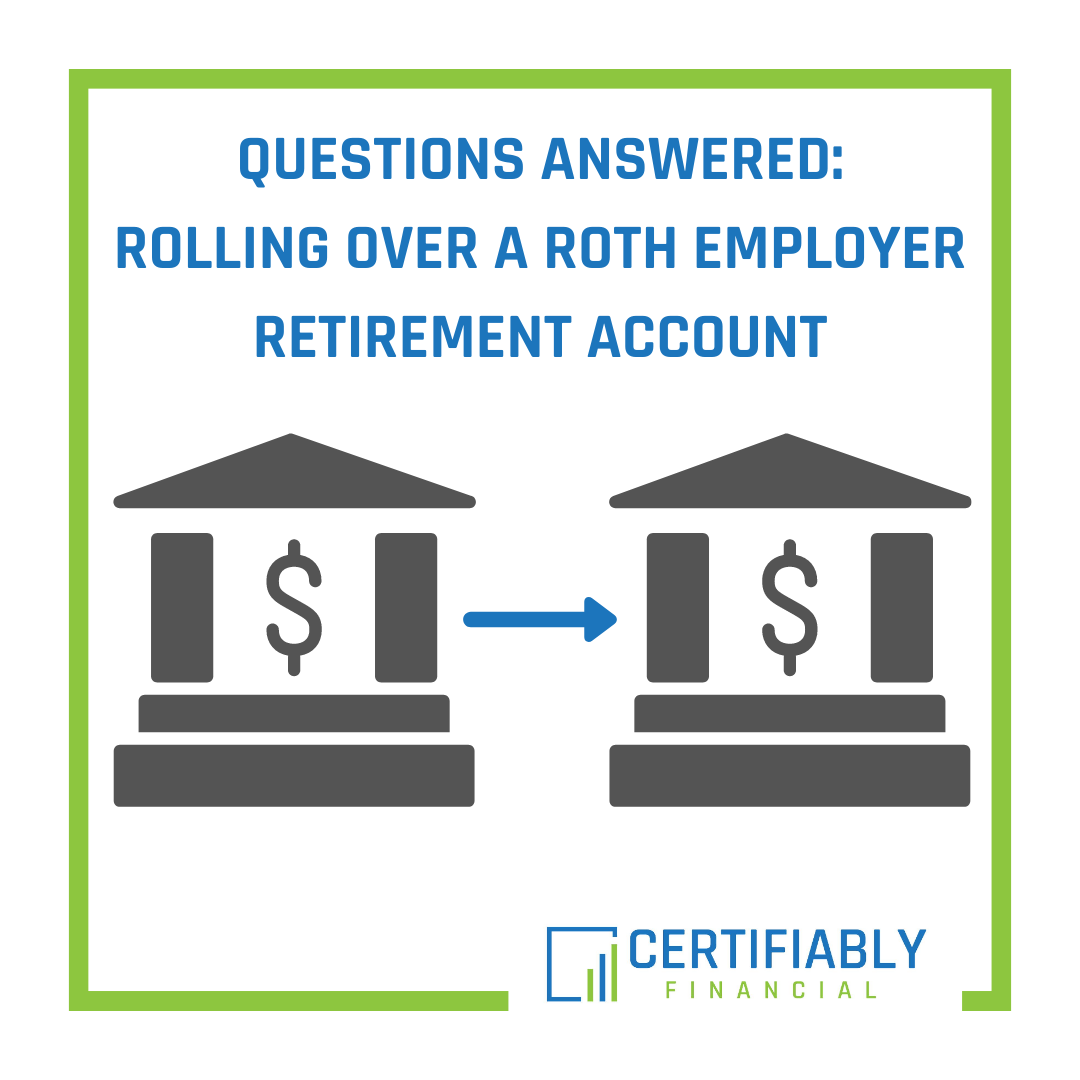Today, I wanted to take the opportunity to clear up the answer to some questions that I’ve been asked a couple of times over the past month regarding whether you can rollover an employer retirement account to an IRA and also make a contribution to the IRA in the same year. The answer to this question isn’t exactly clear without a good understanding of retirement plan rules and evidently there isn’t anything on the internet that does a very good job of explaining it.
The Questions
There are multiple questions around this subject such as:
- If you rollover an employer retirement plan (401K, 403b, 457, etc.) to an IRA, does it count as a contribution?
- Will rolling over an employer retirement plan to an IRA when the employer retirement plan has more money in it than the annual IRA contribution limit result in a penalty?
- Can you still make a contribution to an IRA in the same year that you make a rollover?
Here’s a paraphrase of one of the actual questions that someone asked me:
“My wife and I are toying with the option of her not working after next year and we’re preparing for what to do with her employer retirement account. She has a Roth 403b currently. We’re planning on converting it to her Roth IRA. Does it count as a contribution? And if it does, since she has more than the annual $6,000 IRA contribution limit in her Roth 403b, do we need to stop our current contributions and incrementally convert it to the Roth IRA to avoid going over the contribution limit?
Are there any ‘gotchas’ that we need to be on the lookout for going from one Roth employer account to another Roth individual account?”
The Answer
A retirement plan rollover to an IRA (or Roth IRA) and a contribution to an IRA (or Roth IRA) are two completely different things.
You can rollover your old employer-provided retirement plan balance to an IRA (or Roth IRA) and still make your contribution to the account as well. (There are income limits as to whether or not you can contribute to a Roth IRA, but that’s another discussion for a different day. Please be aware of this). A rollover and a contribution will be coded differently by the company that holds the accounts.
Here are more direct answers to be sure that I’m answering the questions clearly:
- She has a Roth 403b currently. We’re planning on converting it to her Roth IRA. Does it count as a contribution?
No, rolling over an employer retirement account to an IRA (or Roth IRA) does not count as a contribution.
- And if it does, since she has more than the annual $6,000 IRA contribution limit in her Roth 403b, do we need to stop our current contributions and incrementally convert it to the Roth IRA to avoid going over the contribution limit?
Since rolling over an employer retirement account to an IRA (or Roth IRA) does not count as a contribution, she can continue making contributions to her current retirement plan. They will not need to incrementally convert the employer retirement plan to a Roth IRA.
There is no limit on the amount of money that can be rolled over from an employer retirement plan to an IRA (or Roth IRA). You can rollover the full balance of your employer retirement plan to an IRA (or Roth IRA) and still make the full contribution for the year (of course, the income limit for Roth IRA contributions still applies).
The “Gotchas”
The last part of the question asked if there are any ‘gotchas’ to be on the lookout for when transferring from an employer account to an individual IRA.
There are two things that you should be aware of when rolling over an employer retirement account that has Roth dollars in it to an individual Roth IRA. The first is to make sure that the money does get rolled over as Roth and is coded as such at the company that you’re transferring it to. This usually shouldn’t be a problem.
The second is something that might be more of a “gotcha”. If your employer has been making contributions to your retirement plan, then those dollars will (very likely) be pre-tax even if you have been making Roth contributions. Employers want to make pre-tax contributions to employees’ accounts so that they can receive the current tax write off for doing so.
So, if your employer has been making contributions to your retirement account and you have been making Roth contributions to the account you need to be sure to have both a traditional pre-tax IRA and a Roth IRA setup at the company that you want to roll the money over to. The employer contributions will be rolled over to the pre-tax IRA and your Roth contributions will be rolled over to the Roth IRA.

